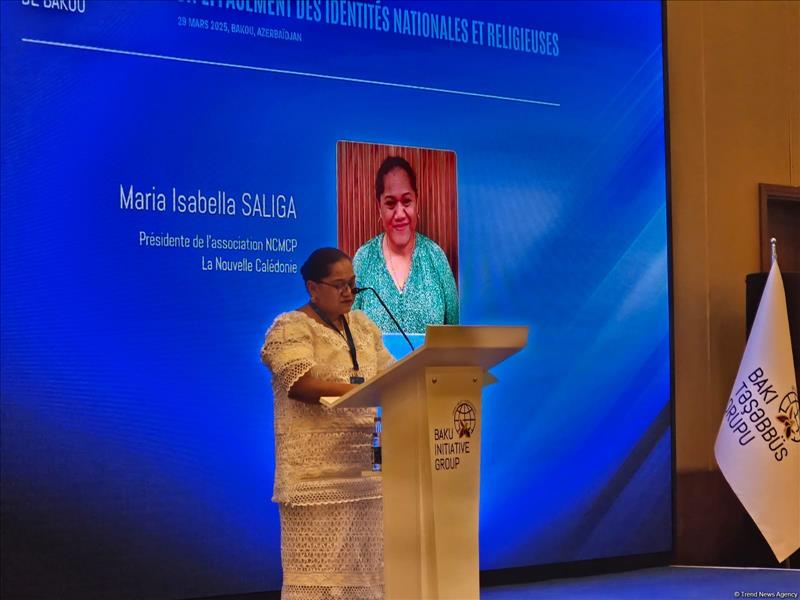
New Caledonian Representative Portrays France's Colonial Policy's Aftermath
Saliga made the remark during the international conference on "Colonialism: the destruction of religious and national identity" organized by the Baku Initiative Group.
She stressed that colonization destroyed not only the cultural traditions but also the spiritual orientations of the peoples who were oppressed.
"We became part of France through violence, and we still bear the heavy burden of these humiliations, the theft of wealth, the destruction of knowledge about medicinal plants, and manipulation through pollution and economic development that serve the interests of the colonial power," she explained.
Saliga noted that France has never abandoned its desire for complete control over its former colonies, trying to keep these peoples in a state of subordination, which began with education in schools, where the foundation of subordination and acceptance of the colonial order was laid, and continued through an unfair judicial system and economic barriers.
Today, according to her, there is a revival of consciousness among the peoples who suffered from French colonialism. Movements for self-determination and economic independence are emerging, and many countries, including African ones, are seeking to free themselves from French oppression.

Legal Disclaimer:
MENAFN provides the
information “as is” without warranty of any kind. We do not accept
any responsibility or liability for the accuracy, content, images,
videos, licenses, completeness, legality, or reliability of the information
contained in this article. If you have any complaints or copyright
issues related to this article, kindly contact the provider above.

















Comments
No comment